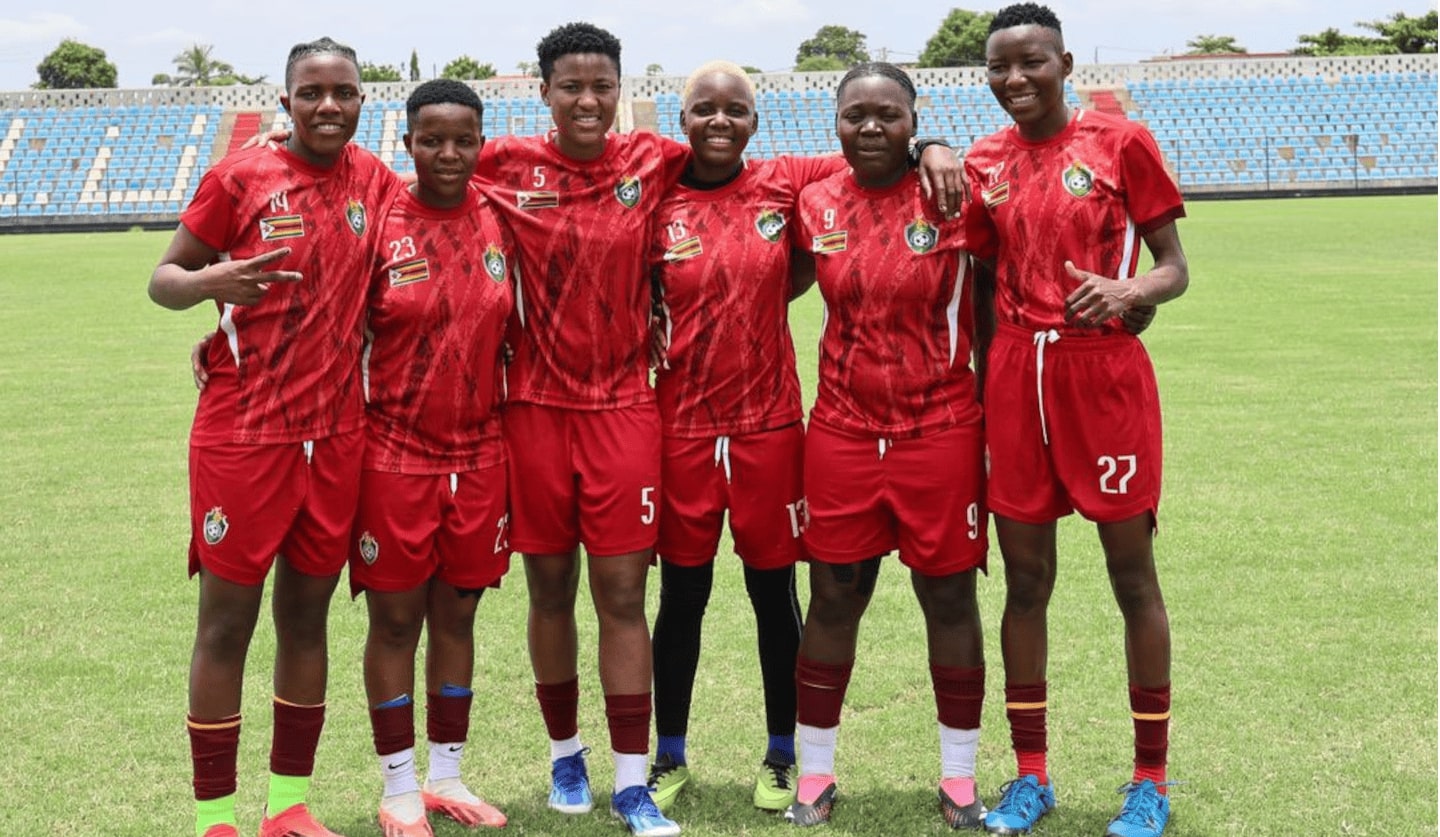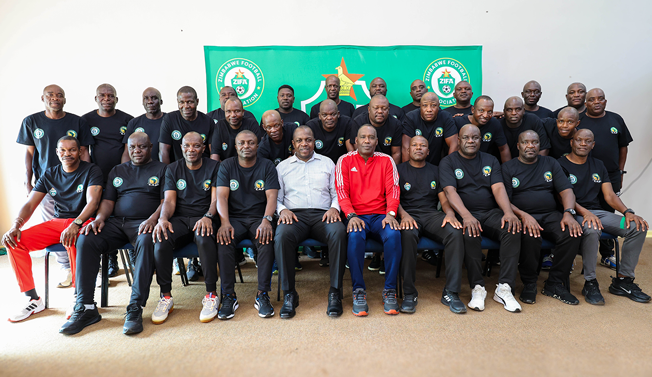

By Nqobile Magwizi (ZIFA President)
I grew up in a big family with more than twenty-two sisters, a household alive with laughter, chatter, and the constant hum of activity. Ours was a home defined by care and hospitality; no matter how little we had, my sisters always found a way to make everyone feel welcome. My older Sisters in particular, Mizbah and Sibongile (now late), left a lasting mark on my childhood heart.
I remember the long, dusty walks to Gokwe Centre, my small legs aching with each mile. When I could go no further, they would take turns carrying me on their backs, whispering encouragement, determined to get me safely to the destination. They never complained, and they never left me behind. That spirit of sacrifice, teamwork, and relentless support shaped me, and it is the very spirit we need to embed in women’s football in Zimbabwe. Like my sisters who carried me when I was too tired to walk, our institutions, communities, and leaders must be willing to lift the women’s game when challenges seem insurmountable. It is only through this unity and selflessness that we can build a stronger foundation for the Mighty Warriors, our women’s clubs, and the young girls who dream of a future in football.
For a moment, we saw what was possible. When the Mighty Warriors – the Zimbabwe women’s
national team – qualified for the 2016 Olympic Games in Rio, the nation erupted in joy. It was a
proud moment not just for the players, but for every girl who dared to dream. One of the
standout players from that campaign, Rudo Neshamba, continues to inspire today – not only
through her legacy on the pitch but now as Chairperson of the Zimbabwe Olympic Committee
Athletes Commission. She is a reminder that women’s football can shape leaders, role models,
and trailblazers.
But we must admit that the joy of Rio 2016 has since been blown away into the wind. The visibility
of the Mighty Warriors has diminished. The local women’s league has battled inconsistent
support. Many of our girls play without proper kits, on poor pitches, often without medical care
or structured development paths. Yet despite these hardships, they keep showing up – with
talent, heart, and hope.
The story of women’s football is one of passion, commitment, and selfless dedication to a dream
that many believed would never come true. When Zimbabwe hosted the 2002 COSAFA Women’s
Cup and the Mighty Warriors reached the final, the seeds that had been sown began to flourish
into a strong field of dreams. That flame – nurtured by pioneers like Susan Chibizhe, Eusebia Nleya, the late Pauline Matute, the late Faith Mpaso, and others who laboured against
stereotypes and societal barriers – deserves to be kept alive with respect and honour.
To change the narrative, real structures must be put in place – and encouragingly, that work is
now underway. A comprehensive Women’s Football Strategy, led by FIFA consultant Thubelihle
Sibanda, is in the final stages of completion. This process has taken her across the country,
engaging stakeholders from grassroots to elite level, listening to the voices of those at the heart
of the game. The Strategy will be a roadmap to guide investment, competitions, talent
development, and leadership inclusion for women’s football in Zimbabwe.
Leadership matters, and progress is beginning to show. Today, four of the eleven ZIFA Executive
Committee members are women – representing more than 36% of the leadership body. That
level of representation was unthinkable just a few years ago. It is a sign of our commitment to
inclusivity and a belief that women must not just play the game – they must help shape its future.
But strategies and statistics alone will not drive change. Culture, perception, and consistent
support are equally important. We must move away from treating women’s football as an
afterthought or charity project. It is a sport. It is a product. It is a powerful platform for
community development, identity, and pride.
The next stage of Women’s football development will start in the schools and communities.
Investment in schoolgirls’ football will be intentional and structured – not seasonal or
ceremonial. Talented players will be scouted early, nurtured through academies or club systems,
and provided with regular competition. We must also be bold enough to create professional
pathways, including a women’s premier league that is funded, televised, and marketed to the
public. Livestreaming matches is no longer the huge technical undertaking it used to be. We just
need to have the correct mindset for it.
We will have a deliberate drive to enhance the number of women in coaching, refereeing, and
administrative roles. Not because they are women, but because they are capable. Leadership
spaces will be opened, and mentorship programs introduced to equip future female leaders with
the skills and support they need.
There is reason to hope. Clubs like Herentals, Correctional Services, Black Rhinos, Blue Swallows,
and Borrow Jets have consistently supported the women’s game. More girls are turning up for
trials. Fans are beginning to follow their local women’s teams. And the spirit of the Mighty
Warriors still lives on – in young girls practicing barefoot on dusty fields, in local tournaments
across provinces, in coaches working with no pay simply because they believe.
Our responsibility as ZIFA is to carry them forward like what my sisters did for me – carry them
when the path is too tough, guide them when the way is unclear, and never stop believing in their
strength. Women’s football is not a side project – it is our pride, our opportunity, and our
responsibility.
The future of Zimbabwean football is not male or female. It is inclusive. It is united.
More News

Sharpening the Touchline before Kick-off
Mon 9 Feb 2026
As Zimbabwe’s topflight clubs put the finishing touches to their preparations ahead of the new season, a quieter but equally significant process is unfolding at ZIFA Village. This week, the CAF A Coaches Refresher Course is underway, bringing together some of the country’s most experienced coaches at a moment when clarity of ideas, sharp thinking […]

